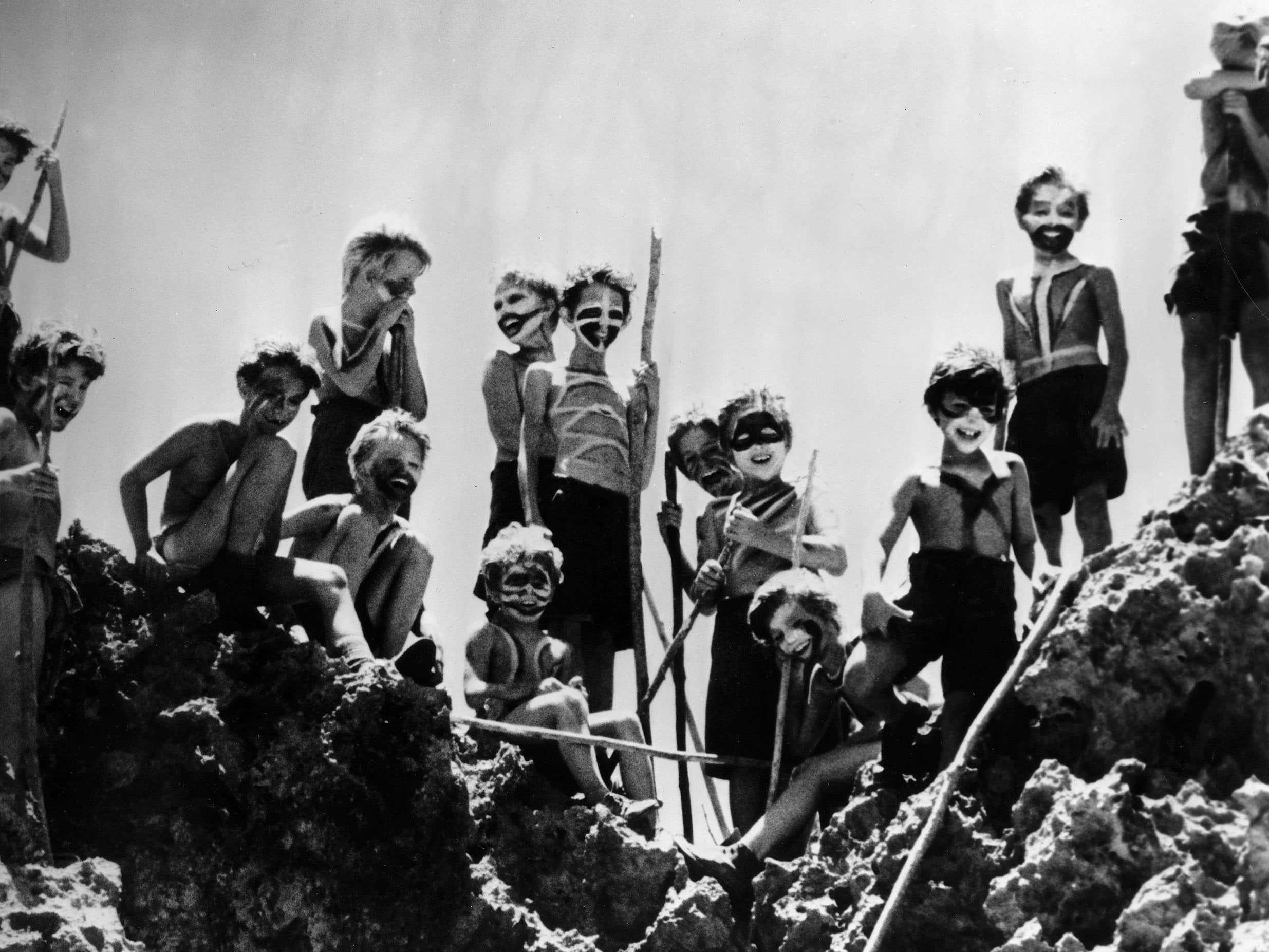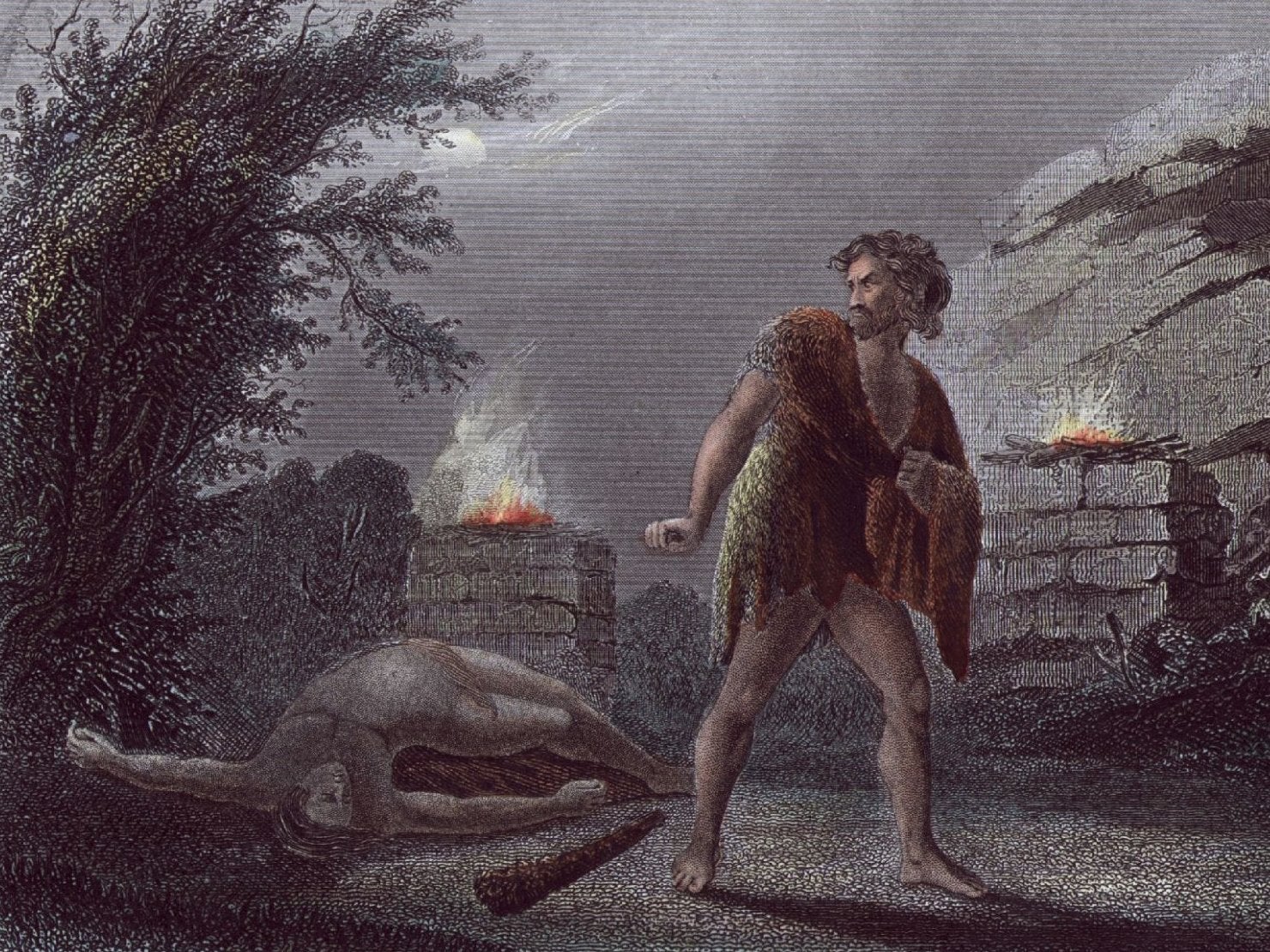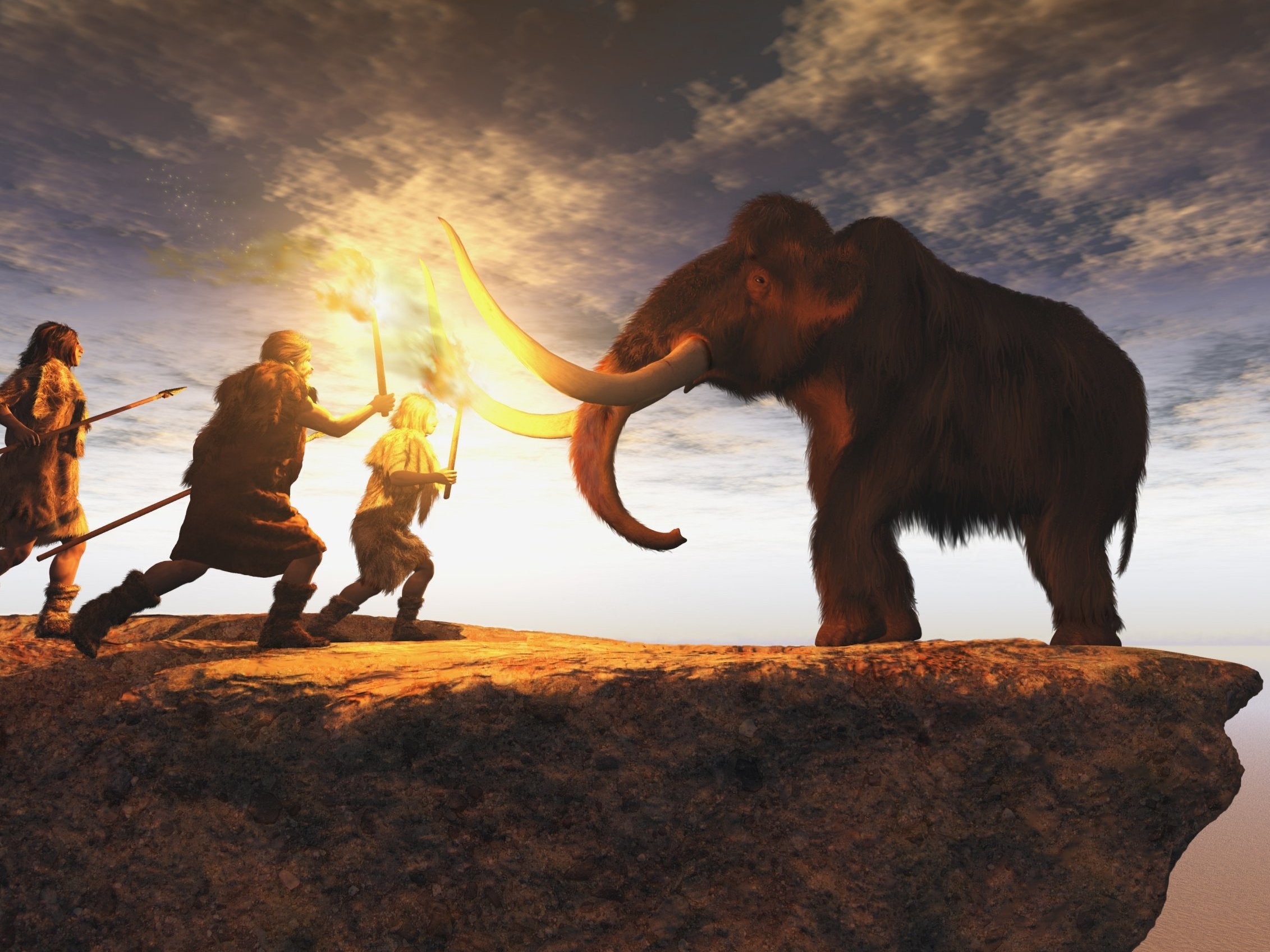Reversing into the future: welcome to the paleo world
Anthropologist Emmanuel Todd’s account of the palindromic nature of human affairs – the more sophisticated we are, the more primal; what we came from we shall return to – is one way of coming to terms with our present condition, says Andy Martin


Madam, I’m Adam.” Garden of Eden chat-up line. Notice anything about that sentence? Or what about this, a brilliant snapshot of the works of TS Eliot by WH Auden: “T Eliot, top bard, notes putrid tang emanating, is sad. I’d assign it a name: gnat dirt upset on drab pot toilet.”
As per the previous, it’s a palindrome, one of those weird and wonderful linguistic constructs that reads exactly the same backwards as forwards. There’s a letter in the dead centre (“I”), like a fulcrum, on which everything else hinges. The great French virtuoso Georges Perec (his parents were Polish), came up with one in French (“Le grand palindrome”) over 10 pages long. Eccentric, certainly, possibly mad. But what if all human history is like this, and with every step forwards we are just as certainly going backwards? Welcome to paleo world.
Perhaps the best recent example of palindromic history is the fall of the Berlin Wall – after which all those bricks were neatly recycled to build other walls, and people are still calling a halt to government with a view to building another one, bigger and better than the last. Even though it’s going to be hard to beat the Great Wall of China. Or even, in its more modest way, Hadrian’s Wall, all designed to keep the barbarians at bay. Which is ironic, because we are the barbarians, gorillas who can hold a pen or a phone. The more sophisticated, the more primal. The more advanced, the more primitive. Behold, homo americanus, a species newly depicted in anthropologist Emmanuel Todd’s vast and mind-expanding Lineages of Modernity: A History of Humanity from the Stone Age to Homo Americanus, which posits that “It is the very primitiveness of America that has made it successful.”
I was reminded, reading a recent biography of the French anthropologist Claude Levi-Strauss, how beautifully humbling anthropology can be, rather like looking out on the Milky Way on a cold, clear night. You think you’re you. But in reality you’re not. You’re just part of a massive system of interlocking parts, stretching across time and space. The very idea of the self is a product of society, designed to keep everyone going about their business. But it’s a delusion that works, as Todd brilliantly argues. It’s one of the great paradoxes of human evolution: the more we convince ourselves we are autonomous individuals, possessed of free will and integrity, the more we are exemplifying an ancient zeitgeist.
If you’re starting to feel just a little bit weary of economics, then join the club. It’s one of the oddities of capitalism that, just as in Marxism, everything has to be seen in terms of economics or freakonomics. As the Bill Clinton campaign had it, it’s the economy, stupid! But what if, fundamentally and looking at it from an anthropological perspective, it’s nothing to do with the economy after all, stupid? Economics is only concerned with the conscious, even possibly rational part of human behaviour. But there is a collective unconscious too that we generally forget about, or would like to forget about: notably the family, or (to speak like an anthropologist) kinship relations.
Everyone has one. To begin with, anyhow. Even if, as in the case of orphans, it may not last very long. But everybody gets orphaned in the end. You lose your parents. Or maybe your parents kick you out. Or your parents split up. Maybe you lose touch with your siblings (if you ever had any in the first place). Maybe it’s Cain and Abel. Maybe your father takes you up a mountain to sacrifice you to Yahweh (thus Abraham and Isaac).
Maybe it’s not so surprising if you want to bump off your own father (like Oedipus). All of Freud arises precisely out of this so-called “family drama”. The point about the “nuclear” family is that (despite all those John Lewis ads at Xmas) it’s always coming apart at the seams, threatening to fission and split. But all these conflicts are only the dark side of our sense of personal freedom.
I’m trying to remember if my parents ever actually said to me, “You’re on your own, now, sonny Jim,” or words to that effect, but it was definitely implied. I was confronted with the anguish of liberty early on. “You want to be a vegetarian? OK, let me see, I think we have some soya here somewhere.” Or “So you’re an atheist now. Interesting!” Or “That’s fine, you don’t have to be a solicitor.” And, “She seems nice.”
Individualism is entirely the product of the collective. The idea that there is ‘no such thing as society’ could not even begin to exist without the solid foundation of a highly organised society right behind it
The nuclear family, in other words, is about as close to anything-goes anarchy as it is possible to imagine within a rule-bound, semi-protective environment (“Remember to look before you cross the street”). It’s why we hate anyone to be “controlling”. The typical western-style family is, in essence, centrifugal, designed to shove you out into the world, producing adventurers and explorers and entrepreneurs and philosophers, prodding and probing and shaping reality. Rugged, dynamic, creative individualists, with women given (in the best case) equivalent status to men. Rather like the early nomads that spread out to populate the earth, rather successfully, pausing only to exterminate Neanderthals along the way.

Individualism is entirely the product of the collective. The very idea that there is “no such thing as society” could not even begin to exist without the solid foundation of a highly organised society right behind it. And this sense of being doomed to wander lonely as a cloud is nothing new. It is – as Rousseau would say – “the state of nature”, our primal condition. Technological modernity coincides with our archaic origins. We are still savages, operating very much along the lines of hunter-gatherers, Bushmen of the Manhattan savanna, equipped with socks and shoes and a Twitter account. All the trappings of so-called civilisation are paper-thin. Strip away Sainsbury’s and Waitrose, and we would soon be picking up rocks and making spears and looking for a woolly mammoth to take down.
The Flintstones never really went away. Which is why we now have paleo politics (what Todd calls “primordial democracy”) in the shape of Trump and Brexit. Or, as the existentialists put it so neatly, hell is other people. Some degree of xenophobia or plain old misanthropy is built into individualism. Paranoia is a by-product of liberty. You’re on your own now, like the three pigs, but you have to beware of the big bad wolf. So build those walls strong and high.
William Golding’s classic Lord of the Flies tells the tale of a bunch of polite British schoolboys who, left to their own devices on an island, are soon killing and slaughtering and worshipping idols. But it’s not fiction. I know a guy, Sam Fussell, who dropped out of Christ Church Oxford, where he was studying English poetry, got into bodybuilding, and eventually went primitive in the wilds of Montana where he shoots wolves and bears – sometimes with a bow and arrow. And the odd thing is, I really like this guy. He is my avatar. He taught me to shoot and has promised to save a bullet just for me for when the going gets too tough. Fussell is the closest real-life counterpart, in my experience, to the fictional figure of Jack Reacher, the XXL vigilante hero of Lee Child’s novels. They are both variations on homo americanus. Which is probably our biggest export to date, an exemplary product of the Anglosphere, and legitimate successor to 200,000-year old homo sapiens. Together with the second amendment of the American Constitution and regular urban massacres.
But as T Eliot, top bard, pointed out, humankind cannot bear very much reality. We get protective, especially where our young ones are concerned. And this is where a different kind of family set-up stems from. Emmanuel Todd, who is a demographer as well as anthropologist, hit me with an amazing statistic. In Iraq, 35 per cent of married couples are first-cousins (he reckons that this figure can rise to 50 per cent in Pakistan). He finds that across vast areas of Eurasia, a different kind of kinship system has developed which is patrilineal and communitarian, with fathers transmitting power and property to sons and keen to see close relatives marrying. This leads not just to women being disenfranchised and segregated, but to the subordination of the individual, social stasis and clan wars.
35%
of married couples in Iraq are first-cousins
The powerful point that he makes, contrary to conventional wisdom, is that the more repressive, controlling, non-nuclear, more centripetal and inward-looking (or “endogamous”) family is not “primitive”, although it may well be medieval. It is the nuclear (and “exogamous”) family that is more primitive, more caveman, more nomad. The cosy-cousins family is a much more recent invention and should, to his way of thinking be deconstructed. We need to go more primitive, not less.
If we consider, for a moment, the current political landscape in the UK, you would have to describe it as increasingly exogamous. Nuclear in the best sense. There seems no compelling reason why, like all good families, parties should not split apart. Schisms are probably a good thing. Better to be disunited if you’re only going to unite around something utterly dumb and dismal.

If economics is conscious behaviour, and education and religion are our subconscious, then it is still family relationships that form the deepest level of our unconscious life. Hence it is around individualism that the clash (or at least divergence) of civilisations will occur. Todd sets out a table in which different societies are compared in terms of their core values under various headings to do with attitudes towards equality, feminism, endogamy and authority. The “anthropological distance” between the Anglosphere and Denmark (hello, Danes!) is zero. At the opposite end of the spectrum, the combined distance from Saudi Arabia is 7.5. I think we can assume, in the aftermath of Khashoggi, that the Saudis don’t exactly prioritise press freedom. Todd offers an equation which explains 9/11: “Maximum incomprehension + intimate association = hatred.” On the other hand, we shouldn’t be so Russophobic. We are closer to Russia (1.5 distance) than Germany (2.5).
But however individualist, we are never going to give up the sense of wanting to belong. We all need a club to support (mine, for example, is West Ham, although if there was an East Ham team I’d probably support them, having been born in East Ham Memorial Hospital). Similarly, we readily fall back on the idea of a nation. It’s what makes the World Cup competitions so irresistible. The more global, the more tribal. It’s pure palindromic history. Even hunter-gatherers had to band together to bring down a mammoth. Doing something about climate control could be a great opportunity for collective effort. Our problem is we have never yet discovered a form of solidarity that doesn’t automatically encode a desire to annihilate the competition. Or as Todd puts it: “Group cohesion depends on hostility to other groups ... Peace is a social problem.”

Emmanuel Todd is an anglophile Frenchman who studied in Cambridge. He reveres the British empiricists and fondly cites AJ Ayer’s Language, Truth, and Logic as a way of cutting through the French over-preoccupation with words. He also credits The Beatles with doing more to undermine the Soviets than the CIA. He tends to think of the European Community as a doomed and deluded project, “a rigid and hierarchical system”. In an almost scientific way, extrapolating from existing data, he is willing to offer a few predictions about the way things are going. I like his theory of zombie religions: “Protestantism and Judaism are dead even though they think they are alive.” In the future we can expect to see more feminism and a greater indifference to gender. But also less (in certain parts of the world). Hence more polarisation.
The bifurcation of the sexes took place only a few billion years ago. If palindromic history is anything to go by, and the future increasingly resembles the past, we can expect to see a time when the sexes and sex will fade away. Kids will pop up out of vats and get to select their parents for a change and tell them what beliefs to adopt. Or we give up the notion of reproducing altogether. Finally the bubble bursts, light is extinguished, and the whole shebang folds up and shrinks into a lonesome, colourblind, extremely dense particle and we are crushed into a singularity. Even though there is no more “we”. Only “one”. And then none.
Andy Martin is the author of ‘Reacher Said Nothing: Lee Child and the Making of Make Me’. He teaches at the University of Cambridge. Emmanuel Todd’s ‘Lineages of Modernity: A History of Humanity from the Stone Age to Homo Americanus’ is published by Polity
Join our commenting forum
Join thought-provoking conversations, follow other Independent readers and see their replies
Comments